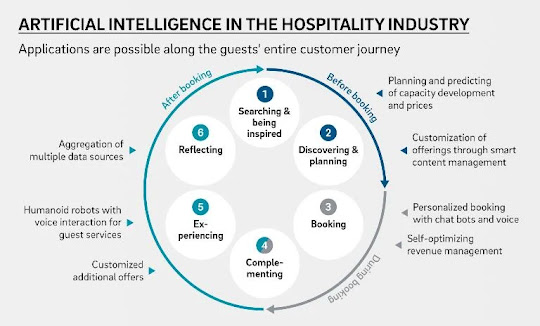Education has undergone a significant transformation in recent years as schools and universities embrace data analytics to inform their decision-making. By tapping into the potential of data, educational institutions are gaining valuable insights into student performance, resource allocation, curriculum design, and administrative strategies.
In this article, we'll explore how data
analytics is revolutionizing education, empowering educators to enhance student
outcomes, boost operational efficiency, and provide personalized learning
experiences.
Predictive Analytics for Student Success is one
of the key ways data analytics is used in education through predictive
analytics models that identify students at risk of falling behind or dropping
out. By analyzing various data points like attendance, grades, behavior, and
demographics, institutions can proactively intervene and offer personalized
support to struggling students. These interventions may include tailored
tutoring, mentoring programs, or defined approaches to address specific
challenges.
Personalized Learning and Adaptive Education
using data analytics plays a crucial role in enabling personalized learning
experiences. By collecting and analyzing individual student data such as
learning styles, preferences, and performance patterns, institutions can
customize lectures to meet each student's unique needs. Adaptive learning
systems leverage data to dynamically adjust content delivery, pacing, and
difficulty levels, ensuring students receive the right material at the right
time, maximizing engagement and understanding.
Curriculum Optimization through data
analytics helps educational institutions optimize curriculum design and
delivery. By analyzing student performance data, educators can identify areas
where students struggle the most and adapt their teaching methodologies
accordingly. Furthermore, data can inform the development of new courses or
modifications to existing ones, aligning the curriculum with emerging trends,
industry demands, and student interests. Ultimately, this data-driven approach
enhances the relevance and effectiveness of education.
By Resource Allocation and Institutional
Efficiency, schools and universities generate a vast amount of data across
their operations. By leveraging data analytics, institutions can optimize
resource allocation and streamline administrative processes. For example,
analyzing data on facility usage patterns can help institutions make informed
decisions about space utilization, ensuring efficient allocation of classrooms
and facilities. Similarly, data analysis can provide insights into staffing
needs, helping institutions optimize faculty recruitment and assignment.
Data analytics plays a pivotal role in conducting institutional research and informing policy development. By analyzing large-scale data sets, educational institutions can identify trends, evaluate the impact of policies and interventions, and generate evidence-based insights. This information guides decision-making at both institutional and governmental levels, leading to the development of effective policies and strategies to improve educational outcomes.
It’s important to note and understand that the
integration of data analytics into education is transforming the manner in
which schools and universities operate. By harnessing the power of data,
institutions are making informed decisions to enhance student success,
personalize learning experiences, optimize curriculum design, allocate
resources efficiently, and drive policy development. As data analytics
continues to evolve, educational institutions will have the tools to provide
high-quality, tailored education that meets the needs of every student. This
advancement promises to revolutionize the educational landscape, ultimately
improving learning outcomes on a broader scale.
MASTIF, our Predictive Analysis technology is
already functional in the Fin-Tech and Homeland security arena with a 98%
proven capability. Connect with #TeamARIS for details on how MASTIF can help your
organization in predictive data analysis that improves performance and profitability.
Cheers








